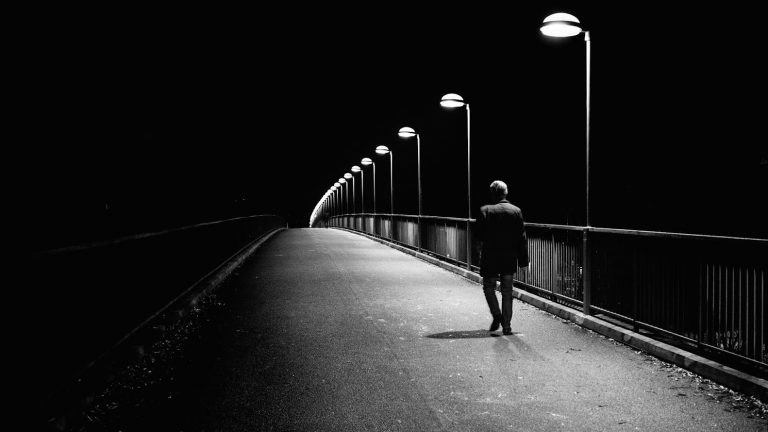The recent suicides of designer Kate Spade and chef/writer/broadcaster Anthony Bourdain have shocked the worlds of fashion, food, and entertainment. While details are still scarce, it does not appear that either person was struggling with a painful or terminal illness, nor any of the other frequent rationales for suicide. Both were of middle age, with the potential for decades of productivity ahead of them. So what’s going on? Why do successful and admired individuals kill themselves, and what should we as a society do about it?
I’ll come right out and admit that I don’t know the answer to the first question. People tend to speak of suicide as a disease, or at least the symptom of a condition such as depression or bipolar disorder, and this leads to speculation about what “causes” suicide. In reality, the decision to end one’s own life is a decision like any other, and people’s reasons vary as much as their individual circumstances. It would make as much sense to ask what “causes” marriage or homeownership. To ascribe a single cause to suicide would be to discount the extremely personal struggles of those who go through with it.
As for the second question, “what should be done?”, I am willing to take the controversial position of “not much.” Suicide is already prohibited by law, and the mere suggestion that a person may be suicidal is regarded as justification for robbing them of their freedom through involuntary commitment in a psychiatric institution. Of course, I’m all for support groups, therapists, counseling, strong families and social circles, suicide hotlines, and anything else that can provide help for those who are suffering—provided that such help is desired and not imposed by force. But as someone who respects and revers human freedom, it’s reasonable to ask how far the law should go in preventing suicide.
Libertarians believe that people have a right to decide how to live their own lives, provided they don’t infringe on the same rights of others. It follows that if you can choose how to live, you should be able to choose whether to live.
“My body, my choice” is a popular slogan among those who support legalized abortion, but it could equally apply to those who wish to cease living altogether.
I understand that this is a sensitive and emotional issue, and I fully expect to meet accusations of callousness in the face of human suffering. But which is more callous: to allow people who are suffering from physical or mental agony to choose to opt out, or to force them to endure that which has become unendurable?
Death Is a Certainty
It is important to remember that the choice we all face is not life versus death. Death is an inevitability. You, I, and everyone we know will all die, sooner or later. Given that fact, the question then becomes, how much control should we have over the circumstances of our death? One might argue that nature should be allowed to take its course, with God or whatever other higher power you believe in determining when and how we die. But this position ignores that many decisions we make—indeed, almost every decision—will have some impact on our life span and chances of meeting with a fatal accident. Every day we choose what and how much to eat, whether to exercise, whether to drink, to smoke, and to engage in risky activities, including but not limited to driving, having sex, bearing children, engaging in sports, swimming, and owning firearms.
If we are permitted to make these decisions, we are, to a certain extent, exerting control over when and how we die. If we are not so permitted, the obvious follow-up question becomes: to whom do we cede that authority?
Whom do you trust to decide what you eat and how much you exercise? Are police justified in snatching a donut from the hands of a diabetic or a bottle of vodka from an alcoholic in order to extend their lives? Should we wring every last drop of existence out of life, regardless of the consequences to happiness and comfort, or is it worth sacrificing a year or two for the privilege of experiencing a few of life’s more dangerous thrills? And again, who decides which tradeoffs to make?
The person who chooses suicide is simply accelerating their departure date, for personal reasons that usually involve intense pain and misery. If we are to deny them that option, why go any easier on the equally miserable sap who drinks or eats or smokes himself to death over the course of many years?
A Word of Caveat
While I believe individuals have the right to end their own lives if they so choose, this should not be interpreted as an endorsement of euthanasia or physician-assisted suicide. There is a fundamental moral and ethical difference between taking one’s own life and taking the life of another, even when the patient has given his permission. And even if a patient can, in principle, designate an agent to carry out his wishes, the practical political ramifications are so great as to be almost insurmountable.
To begin with, physicians are bound by the Hippocratic Oath to first do no harm. They are supposed to heal, not harm, and involving them in patient deaths perverts their role in society and creates all kinds of perverse incentives. In a world of scarce medical resources, expensive and difficult patients will face pressure to opt for death rather than continued care, with insurance companies offering to pay for lethal drugs while denying coverage for more costly treatments. Death panels, indeed.
Additionally, the legal system would be faced with the extremely difficult challenge of determining whether or not euthanized patients were actually consenting, made especially thorny by the dementia that many terminal patients experience near the end of their lives.
If a patient wants to end his life, it should be his choice, but also his responsibility. Even the weakest patient can choose death by the simple act of refusing food and drink. Doctors need not be complicit.
Objections Answered
Those who find my arguments up to now distressing and unconvincing typically raise three objections to the claim that suicide should be regarded as a personal choice rather than a crime or a disease. I attempt to answer them here.
But what about those left behind? Are we to have no pity for them?
The loss of a loved one is, of course, traumatic in the extreme. Those who have to survive the death of a spouse, a family member, or a close friend, deserve all the sympathy and support we can muster. But ultimately, our lives are our own, not those of our family.
Some parents are wracked with grief over their daughter’s choice of husband, over a refusal to provide grandchildren, or of a son’s unwillingness to follow in the family profession. The suffering in such cases is real and should not be dismissed, but neither does it justifying placing restrictions on the freedom of children to choose their own path.
Suicide is often described as a selfish act, and in the cases when a person uses death as a way to abandon their obligations to their family, I agree. But it’s equally selfish to allow our own squeamishness about death to force someone to live in pain and misery against their will, for an indefinite period of time.
Anyone who would consider killing himself is obviously insane, and not competent to make decisions on his own behalf.
This is a form of circular reasoning. They are insane because they want to die, and they want to die because they are insane. In reality, there is no objective test to determine whether or not someone is insane, and in fact the label is a political and social one rather than a medical one. What we mean when we say that someone is crazy, not in his right mind, or irrational, is simply that we disagree with his choices, not that he is unable to make choices.
There are plenty of rational reasons to prefer death to life. Just because we may not like them doesn’t mean they don’t exist.
Suicidal misery is temporary. It gets better.
Are you sure? This is doubtless true for many cases, but we can’t know the future any more than the suicidal person can. Maybe things will get better, but maybe things will stay the same, or even get worse. Maybe circumstances will improve, but only after such a prolonged period of suffering that the payoff is not worth it. Only the person actually experiencing the suffering can make that calculation, and the fact that they may be wrong is no justification for denying them a choice. If it were, we would have to forbid many other irrevocable acts as well. Why should we allow people to have children when they may give birth to a horribly deformed baby, may die in childbirth, or may deeply regret the decision to have a child in the first place?
The future is always uncertain, but we make decisions based on the best information we have at the time. That information may turn out to be wrong, but it’s a risk we have to take lest all action become impossible.
It is always sad when one of our fellow humans finds life so difficult as to be intolerable. Finding happiness is always preferable to failing to find it. But out society’s hostile attitude towards people who choose to end their pain rather than endure it says more about our own insecurities and neuroses surrounding death than it does about the Anthony Bourdains and Kate Spades of the world. To them, I simply and sincerely wish that they be able to rest in peace.














Add comment